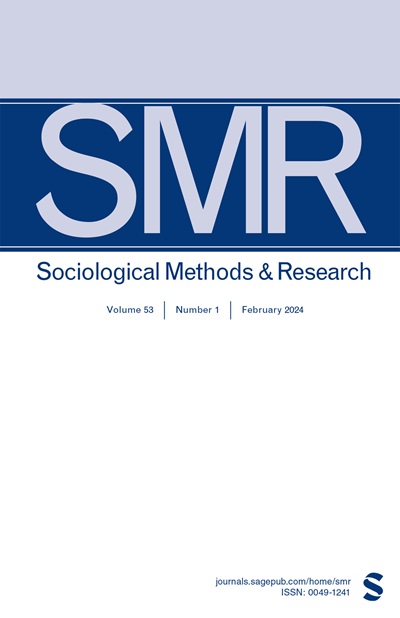使用逆概率加权来解决结果后对撞机偏差
IF 6.5
2区 社会学
Q1 SOCIAL SCIENCES, MATHEMATICAL METHODS
引用次数: 1
摘要
我们考虑由后结果对撞机条件反射引起的偏差问题。我们通过Elwert和Winship(2014)来说明这一点,但我们超越了他们的研究,调查了逆概率加权可能提供解决方案的程度。我们使用线性模型来推导在不同类型的结果后混淆中产生的偏差的表达式,并且我们展示了在特定情况下,逆概率加权将允许我们获得一致的估计,或者如果不一致,则比通过普通最小二乘回归获得的估计偏差更小。本文章由计算机程序翻译,如有差异,请以英文原文为准。
Using Inverse Probability Weighting to Address Post-Outcome Collider Bias
We consider the problem of bias arising from conditioning on a post-outcome collider. We illustrate this with reference to Elwert and Winship (2014) but we go beyond their study to investigate the extent to which inverse probability weighting might offer solutions. We use linear models to derive expressions for the bias arising in different kinds of post-outcome confounding, and we show the specific situations in which inverse probability weighting will allow us to obtain estimates that are consistent or, if not consistent, less biased than those obtained via ordinary least squares regression.
求助全文
通过发布文献求助,成功后即可免费获取论文全文。
去求助
来源期刊

Sociological Methods & Research
Multiple-
CiteScore
16.30
自引率
3.20%
发文量
40
期刊介绍:
Sociological Methods & Research is a quarterly journal devoted to sociology as a cumulative empirical science. The objectives of SMR are multiple, but emphasis is placed on articles that advance the understanding of the field through systematic presentations that clarify methodological problems and assist in ordering the known facts in an area. Review articles will be published, particularly those that emphasize a critical analysis of the status of the arts, but original presentations that are broadly based and provide new research will also be published. Intrinsically, SMR is viewed as substantive journal but one that is highly focused on the assessment of the scientific status of sociology. The scope is broad and flexible, and authors are invited to correspond with the editors about the appropriateness of their articles.
 求助内容:
求助内容: 应助结果提醒方式:
应助结果提醒方式:


